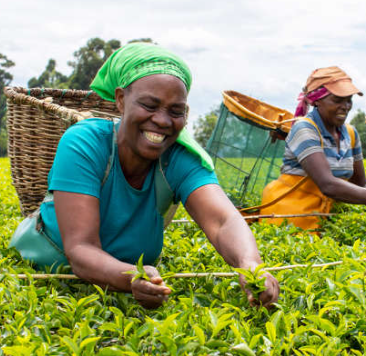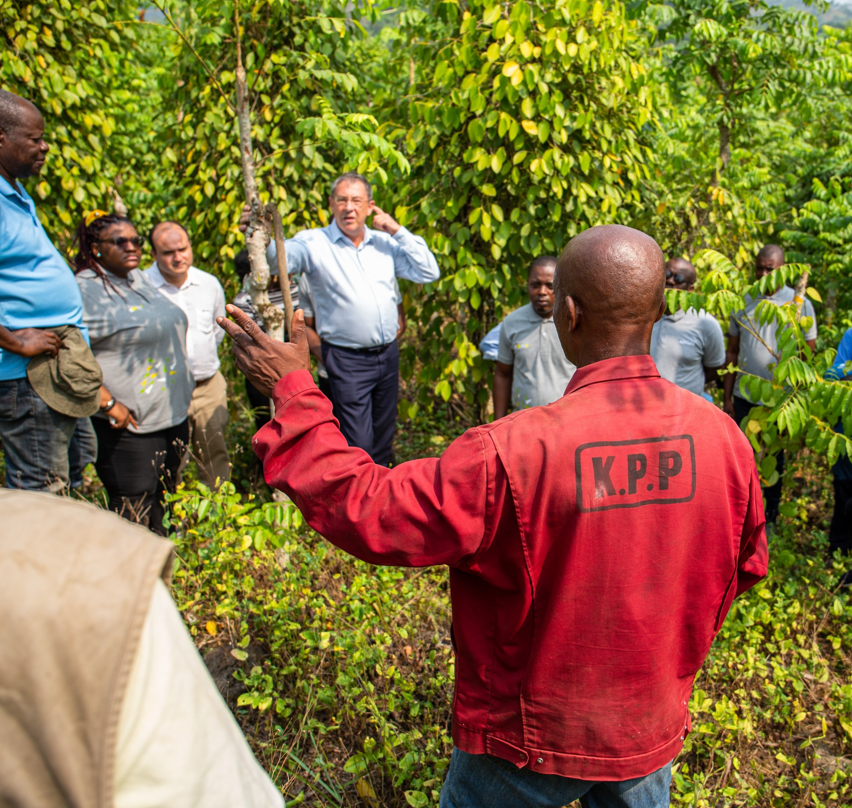
On 3-6 September 2019, the African Green Revolution Forum (AGRF) will take place in Accra, Ghana under the leadership of the President of the Republic of Ghana, H.E. Nana Addo Akufo-Addo, and the theme of Grow Digital: Leveraging digital transformation to drive sustainable food systems in Africa.
In efforts to drive new business deals and commitments between enterprises, governments, investors and other development institutions, the AGRF features the Agribusiness Deal Room where these actors connect and discuss specific agriculture investments. This year, the SAFIN Secretariat collaborated with AGRA and other partners to design the Deal Room aiming to attract investees and investors from across the network and ultimately contribute to scaling up access to finance and investment for agri-SMEs in Africa.
In this interview, Jennifer Baarn, Head of Partnerships at the Alliance for a Green Revolution in Africa (AGRA), talks about what to expect from this year’s deal room.
Can you describe the main achievements of the deal room in 2018?
The Agribusiness Deal Room at the AGRF 2018 can be described as a pilot with limited time for preparatory work. A few months towards the AGRF 2018, the Rwandese government expressed interest in presenting the country as an investment destination for agriculture in Africa. We worked with the Rwandese government to develop presentations for investment opportunities in the country, and together with the Rwandese Development Board we identified almost 20 companies to be included in this presentation. We then designed a special Deal Room to match these companies and investors to each other.
Even with the short notice, this proposal received a tremendous response, and attracted 16 capital seekers from 6 different sectors along the agriculture value chain, 10 global and regional investors, and 8 investment promotion agencies from across Africa. We hosted about 60 valuable conversations around these investment opportunities throughout the forum, and this indicated to us a strong interest in the Deal Room.
At AGRA, we specialize in value chain construction and facilitating the enabling environment around agriculture value chains and smallholder farming, not necessarily in the investment space. We realized that the strong convening power at the AGRF could be leveraged to better broker deals between investors and investees, to attract the investor community towards agriculture-which is still perceived as a high-risk activity requiring a lot of value chain coordination, and to significantly reduce transaction costs.
The Deal Room in 2018 was also an opportunity to introduce the investor community to risk mitigating activities, many of which AGRA and other partners are currently doing. These include capacity development for smallholder farmers, aggregation, introducing new technologies and engaging in the policy environment, all of which can improve agricultural value chains and the ability of farmers to deliver good quality produce consistently.
What can participants expect from the Deal Room this year?
One of the main takeaways from the Deal Room in 2018 was the need for a pipeline of eligible deals and companies, which cannot be driven by AGRA alone. To facilitate this, we have built a partnership of 12 partner institutions, including the International Finance Corporation, the Africa Enterprise Challenge Fund and the African Development Bank who have designed the Deal Room since early 2019.
On top of the 50 investors expected this year, including commercial banks, development finance institutions and private equity companies, we are also engaging governments that can influence the success of investments through policy. This year, 16-20 governments will participate in the Deal Room as investors and as investees, and will be at the heart of discussions on investment bottlenecks.
Strong regional and global anchor buyers and traders, like Dangote Industries Ltd, Unilever and Nestlé will also take part in the discussion on how they can leverage their market power to make value chain work better for small farmers. We are bringing all the different actors together in the context of digitalization, so that digital companies who can present digital solutions and explore how these solutions can strengthen agricultural investments.
Following up on these investment deals to understand success factors and bottlenecks, whether individual or systemic, is another core element this year. We have integrated a yearlong portfolio management and advisory programme to facilitate this.
What types of investments are receiving the most interest from investors this year?
Overall, we're expecting over 100 investment opportunities this year, ranging from half a million to 50 million dollars per investment, and totaling half a billion dollars. There is a lot of interest in 5-10 million dollar investments in the value-added processing sector and in companies operating in a stable environment and delivering products of reliable quality. We are seeing increased collaboration among different actors, even some consortia of private companies and research institutions, to develop very interesting investment proposals.
What are the key elements of the post-AGRF portfolio management for selected investments? What kind of support will be provided to agri-SMEs specifically?
For the year following the AGFR 2019, we will promote the profiles of capital seekers to a variety of investors, monitor investment deals initiated in the Deal Room and in some cases accompany negotiations until closure. Our goal is to map where investments deals drop off the radar, identify any gaps or bottlenecks, and discuss how different actors can jointly address them.
Many of our Deal Room design partners have ongoing programs that provide technical assistance and matchmaking to agri-SMEs to make them investment ready and programmes to prepare investors for agri-finance, including by providing guaranteed capital. Although such programmes are already in place, fragmentation and high transaction cost in the agriculture finance landscape are continuing challenges.
Follow the African Green Revolution Forum here.

